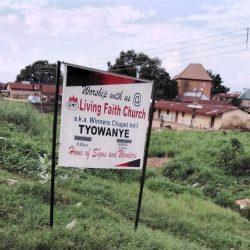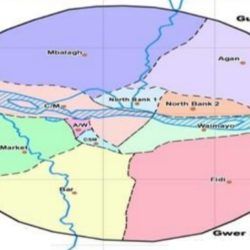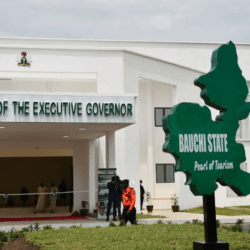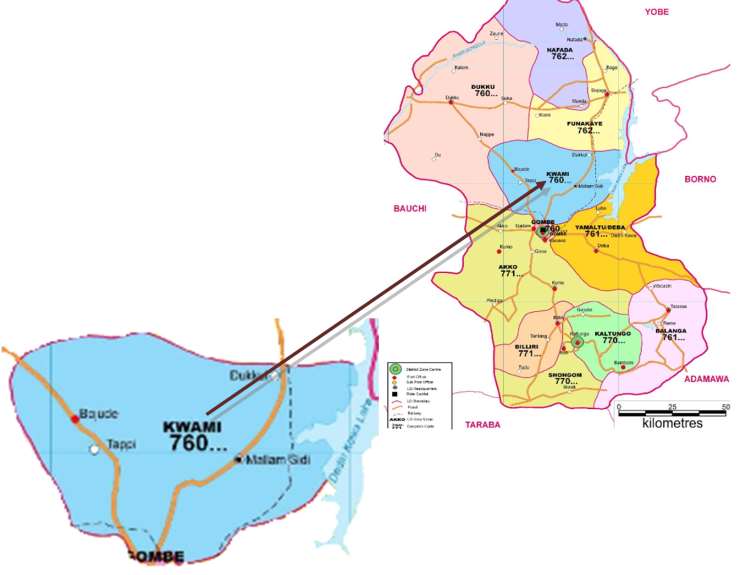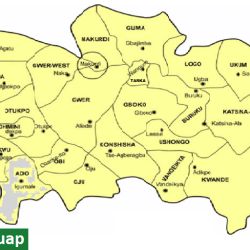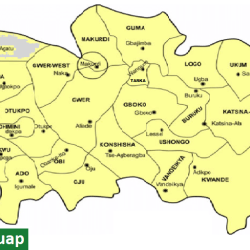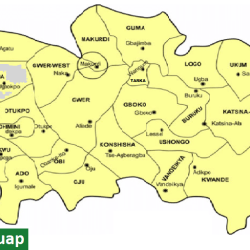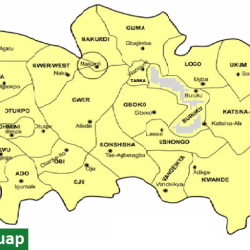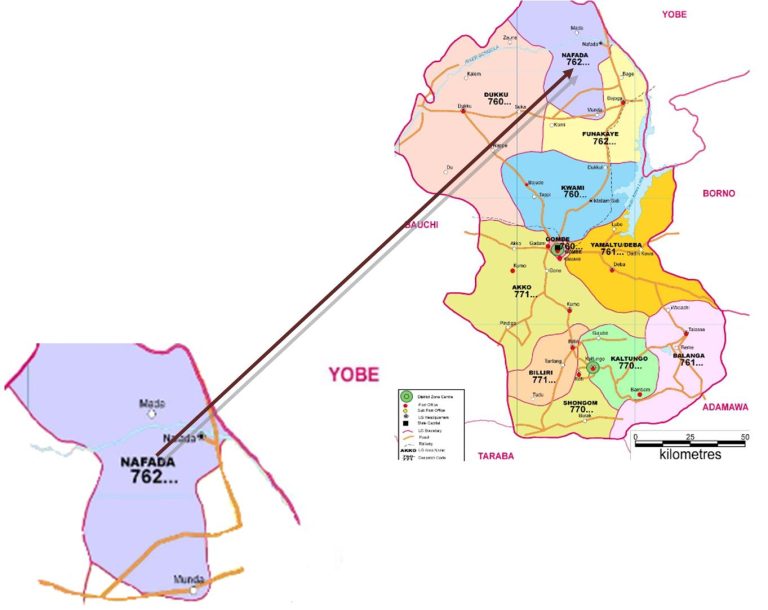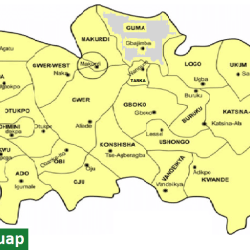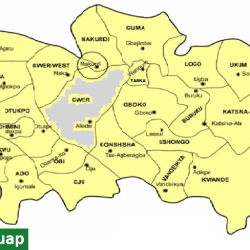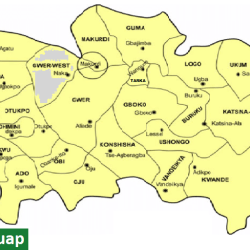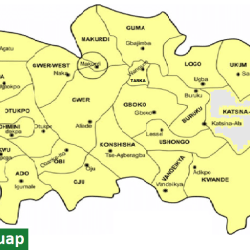Ijumu kingdom or what is known as Ijumu Local Government Area is located between latitude 7/30 to 8/10 North of the equator and between longitudes 5/45 to 6/15 east of the Greenwich Meridian. Ijumu Local Government Area has a total land mass of 1490 square kilometres. Ijumu Local Government Area shares common boundaries with Ekiti State to the West between Iyamoye and Omuo-Oke as well as between Iyamoye and Igbagun in Yagba East Local Government Area in Kogi State.
It also share boundary with Ondo State between Ayere and Efife and Aknnu,Iyamoye and Eriti in Akoko area of Ondo State. To the south, Ijumu Local Government Area has boundaries with Edo State between Aduge and Imoga as well as Ekehi Local Government Area of kogi State between Ihima and Ogale/Aduge. To the North, it shares boundaries with Mopa Amuro Local Government Area Kogi State at River Agbarakin before Government Technical College Mopa and River Ayamoha in Oke-Agi area.
Ijumu local Government Area is one if the five local Government areas in Okunland today located in the Kogi West Senatorial district of Kogi State. Ijumu Local Government is about 98km from Lokoja, the headquarter of kogi State, particularly from Iyara the Local Government headquarter and about 236km from the new Federal Capital Territory, Abuja.
Since 1991 when Ijumu Local Government was re-created by General Ibrahim Babangida Administration, various leaders have piloted its affairs, starting with a woman as its Sole Administrator, Chief (Dr) Mrs Grace Gunwa. She was in this position until the end of that year when Chief J.O.Ajewole was elected as the Council
Kogi
Kogi State is one of the 36 states of Nigeria, located in the north-central region of the country.


It is home to the confluence of the Niger and Benue rivers which form the largest inland delta in Africa. It is also blessed with diverse mineral deposits, such as coal, iron ore, limestone, gold, and kaolin.



It was created in 1991 from parts of Kwara State and Benue State, and it is bordered by Niger, Federal Capital Territory, Nassarawa, Benue, Enugu, Anambra, Edo, Ondo, Ekiti, Kwara and Niger states.

The state capital is Lokoja, which is also the confluence of the Niger and Benue rivers, making it a historically significant location for trade and commerce.

It has a population of about 4.5 million people, according to the 2006 census, and it is ethnically diverse with over 50 indigenous groups, including Igala, Ebira, Okun, Bassa, Nupe and others.
Kogi is divided into 21 local government areas (LGAs), and it has three senatorial districts: Kogi East, Kogi West and Kogi Central.
List of 21 Local Government Areas in Kogi State
- Adavi
- Ajaokuta
- Ankpa
- Bassa
- Dekina
- Ibaji
- Idah
- Igalamela-Odolu
- Ijumu
- Kabba/Bunu
- Kogi
- Lokoja
- Mopa-Muro
- Ofu
- Ogori/Mangongo
- Okehi
- Okene
- Olamabolo
- Omala
- Yagba East
- Yagba West

Tourist attractions include Lord Lugard Residence, the Mount Patti Hill, the Confluence Beach Park, the Awo Tunnel, the Ogidi-Ijumu Rock Formation and the Iron of Liberty Monument.
The state is known for its cultural diversity and festivals such as the Igala Cultural Festival, the Ebira Carnival, the Okun Day Celebration and the Bassa Nge Festival.
Kogi festivals include the Igala Masquerade Festival and the Ebira Carnival.

The Igala Masquerade Festival is an annual event that showcases the rich traditions and costumes of the Igala people. The festival features different types of masquerades that represent different aspects of Igala culture and mythology.

The Ebira Carnival is another colorful celebration that involves music, dance, and art. The carnival showcases the creativity and talent of the Ebira people, who are known for their pottery, weaving, and carving skills.
Kogi is a state that offers a lot of opportunities for adventure, learning, and fun. It is a place where you can experience the beauty and diversity of Nigeria’s culture and nature.
